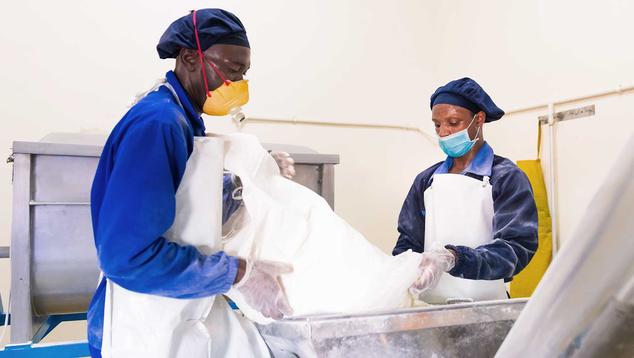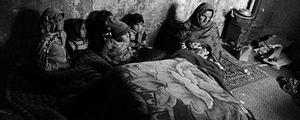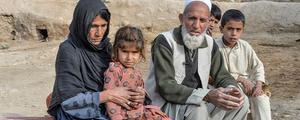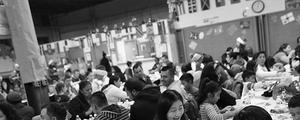Story Highlights
- Migrants, native-born are as likely to be highly vulnerable in developing economies
- Migrants in developed world more than twice as likely to be highly vulnerable as native-born
This article is the fourth in a series based on results from Gallup's new Basic Needs Vulnerability Index.
WASHINGTON, D.C. -- Amid the COVID-19 pandemic, migrants are facing the same health threats as the native-born population, but many of them are particularly vulnerable because of their working and living conditions -- and their lack of access to health services. In some countries, low-income migrants account for a high percentage of infections.
Gallup's new Basic Needs Vulnerability Index shows migrants in the developing world were more likely than those in the developed world to be highly vulnerable before the pandemic. However, compared with the native-born where they live, migrants living in the developed world were actually more at risk at the onset of the pandemic.
Before the pandemic, migrants and the native-born in developing economies were equally as likely to be highly vulnerable. One in six in each group were struggling to meet their basic needs for food and shelter and did not have the help of family or friends. But in the developed world, migrants were at a disadvantage. Migrants (7%) were more than twice as likely as the native-born (3%) to be highly vulnerable.
| Migrants in developed economies | Native-born in developed economies | Migrants in developing economies | Native-born in developing economies | ||||||||||||||||||||||||||||||||||||||||||||||||||||||||||||||||||||||||||||||||||||||||||||||||
|---|---|---|---|---|---|---|---|---|---|---|---|---|---|---|---|---|---|---|---|---|---|---|---|---|---|---|---|---|---|---|---|---|---|---|---|---|---|---|---|---|---|---|---|---|---|---|---|---|---|---|---|---|---|---|---|---|---|---|---|---|---|---|---|---|---|---|---|---|---|---|---|---|---|---|---|---|---|---|---|---|---|---|---|---|---|---|---|---|---|---|---|---|---|---|---|---|---|---|---|
| % | % | % | % | ||||||||||||||||||||||||||||||||||||||||||||||||||||||||||||||||||||||||||||||||||||||||||||||||
| High vulnerability | 7 | 3 | 16 | 16 | |||||||||||||||||||||||||||||||||||||||||||||||||||||||||||||||||||||||||||||||||||||||||||||||
| Moderate vulnerability | 29 | 21 | 49 | 43 | |||||||||||||||||||||||||||||||||||||||||||||||||||||||||||||||||||||||||||||||||||||||||||||||
| Low vulnerability | 64 | 75 | 35 | 41 | |||||||||||||||||||||||||||||||||||||||||||||||||||||||||||||||||||||||||||||||||||||||||||||||
| Gallup World Poll, 2019 | |||||||||||||||||||||||||||||||||||||||||||||||||||||||||||||||||||||||||||||||||||||||||||||||||||
Basic Needs Vulnerability Index
Gallup's Basic Needs Vulnerability Index gauges people's potential exposure to risk from economic and other types of shocks like a pandemic. Beyond measuring people's ability to afford food and shelter, this index also folds in whether people have personal safety nets -- people who can help them when they are in trouble.
People worldwide fall into one of three groups:
High Vulnerability: People in this group say there were times in the past year when they were unable to afford food or shelter or say they struggled to afford both and say they do not have family or friends who could help them in times of trouble.
Moderate Vulnerability: People in this group say there were times in the past year when they were unable to afford food or shelter or say they struggled to afford both, and they do have family or friends to help them in times of trouble.
Low Vulnerability: People in this group say there were not times in the past year when they struggled to afford food or shelter and say they do have family or friends to help them if they were in trouble.
Social Safety Nets Make a Difference
In both the developed and developing world, migrants were substantially more likely than the native-born to say there were times in the past year when they could not afford food or adequate shelter -- or that they could afford neither. This is consistent with Gallup's previous research that documents migrants' struggles to afford the basics.
| Migrants in developed economies | Native-born in developed economies | Migrants in developing economies | Native-born in developing economies | ||||||||||||||||||||||||||||||||||||||||||||||||||||||||||||||||||||||||||||||||||||||||||||||||
|---|---|---|---|---|---|---|---|---|---|---|---|---|---|---|---|---|---|---|---|---|---|---|---|---|---|---|---|---|---|---|---|---|---|---|---|---|---|---|---|---|---|---|---|---|---|---|---|---|---|---|---|---|---|---|---|---|---|---|---|---|---|---|---|---|---|---|---|---|---|---|---|---|---|---|---|---|---|---|---|---|---|---|---|---|---|---|---|---|---|---|---|---|---|---|---|---|---|---|---|
| % | % | % | % | ||||||||||||||||||||||||||||||||||||||||||||||||||||||||||||||||||||||||||||||||||||||||||||||||
| Unable to afford food at times | 22 | 14 | 45 | 39 | |||||||||||||||||||||||||||||||||||||||||||||||||||||||||||||||||||||||||||||||||||||||||||||||
| Unable to afford shelter at times | 18 | 11 | 41 | 34 | |||||||||||||||||||||||||||||||||||||||||||||||||||||||||||||||||||||||||||||||||||||||||||||||
| Did not have friends and family to help | 15 | 9 | 23 | 26 | |||||||||||||||||||||||||||||||||||||||||||||||||||||||||||||||||||||||||||||||||||||||||||||||
| Gallup World Poll, 2019 | |||||||||||||||||||||||||||||||||||||||||||||||||||||||||||||||||||||||||||||||||||||||||||||||||||
The differences on the Index between migrants and the native-born in the developed and developing world have to do with whether they have social safety nets. Migrants in the developed world were less likely than the native-born to say they have family and friends they can count on when they are in trouble, while in the developing world, migrants were more likely than the native-born to have a social safety net.
These patterns are also consistent with Gallup's earlier research that shows the native-born in developed economies are more likely than migrants to say they have someone they can count on, they spend more hours with friends, and they talk more to friends.
Implications
With an estimated 37 million people thrown into extreme poverty since the start of the pandemic, the ranks of the world's most vulnerable are likely only to grow before the pandemic runs its course. These vulnerable populations will continue to bear a disproportionate burden from the pandemic. Among them will be millions of migrants, who were already struggling to afford food and shelter before the pandemic and couldn't count on friends and family to help.
Ying Han contributed to this article.
See where your country falls on the Basic Needs Vulnerability Index (PDF download).
For complete methodology and specific survey dates, please review Gallup's Country Data Set details.
Learn more about how the Gallup World Poll works.




